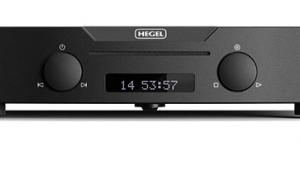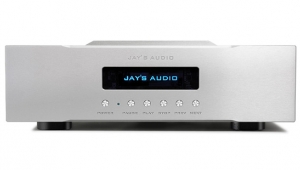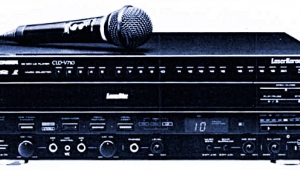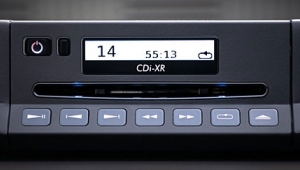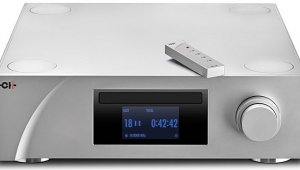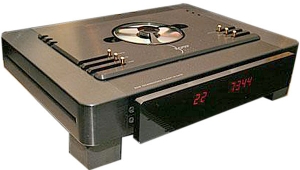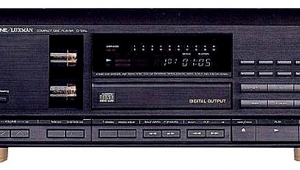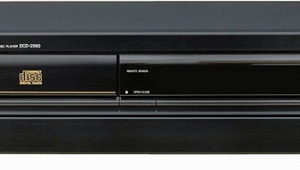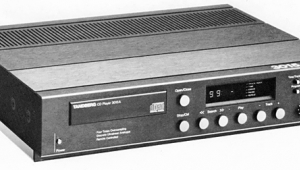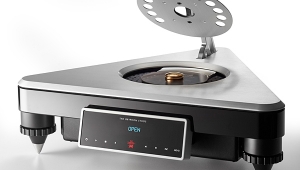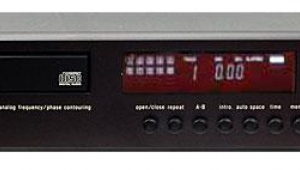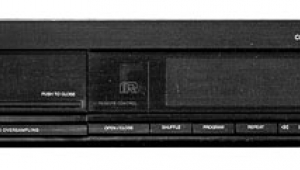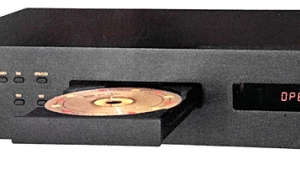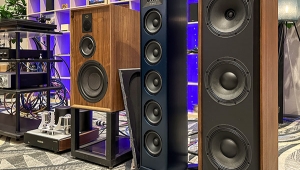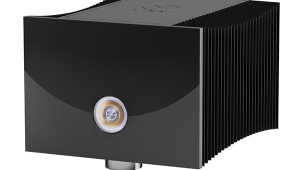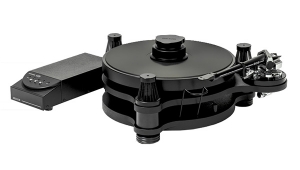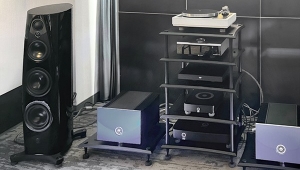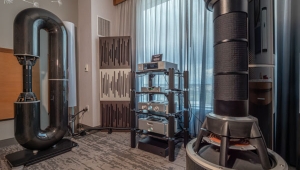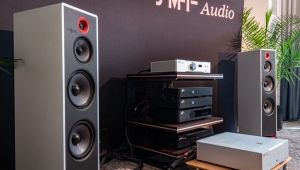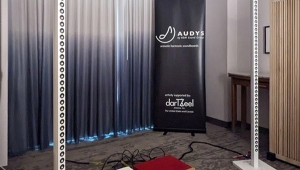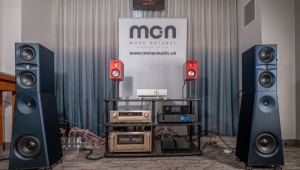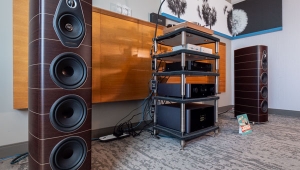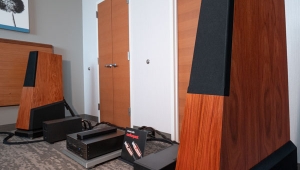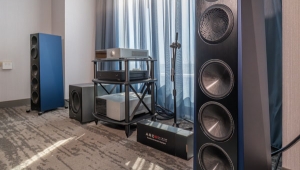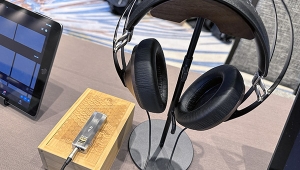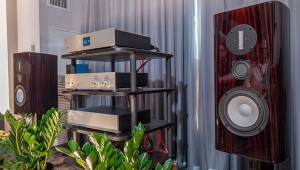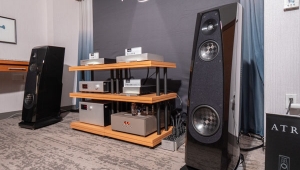| Columns Retired Columns & Blogs |
Cyrus CD 8x CD player
A week with the Cyrus CD 8x CD player
Tuesday, October 18
I think I might shave my head. So much of my hair has thinned out that most styles are no longer feasible. Flat-top? No. Mullet? No. Long on the sides? Think: Rudy Giuliani on a blustery day, or a squid going for a ride on a cannonball. The day has arrived when virtually all hairstyles look stupid on me, and I no longer care. I hate them all, and I hate having to think about them. I just want to be done with it.
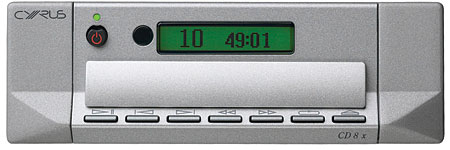
I think that's also why so many people—also middle-aged men, interestingly enough—are driven to do away with compact-disc players altogether, sometimes in favor of an incongruous combination of downloads and vinyl. After 12 years of screwing around with multibit, single-bit, oversampling, upsampling, side-sampling (I made that up), HDCD, SACD, DVD-Audio, HD-DVD, and now Blu-ray, it's no wonder some enthusiasts are no longer very enthusiastic when it comes to buying another CD player, ever, period.
But in spite of my efforts to keep it thinned out (there's that phrase again), my CD collection remains in the low four figures. And it just so happens that CD players as a group are the least reliable components I've experienced over the years: My first player, a high-end–approved Magnavox, broke down after a couple years' service (it was in fact a replacement for the real first Magnavox I bought, which was DOA); the unit I currently own, a Sony SCD-777 SACD/CD player, has been out of commission for a couple of months, waiting for someone to call me out of the blue and tell me where to have it fixed; and between then and now almost a dozen of the many players that have passed through these doors have failed in the field. Turntables, by comparison, are the indestructible slant-six engines of my adulthood, and tube amps—even those single-ended tube amps designed by people whose only commonality with real engineers is their lack of social skills—have been markedly more reliable.
The fact is: You and I and almost everyone else who reads Stereophile will continue to need the occasional new CD player—yet there's little sense in spending permanent money on a temporary thing. Enter the more affordable choices from Europe's great design houses, such as Arcam, Rega, Exposure, Ah!, Sugden, Naim, and the subject of this review, Cyrus. Which is how all of this got started, now that I think about it.
Friday, October 21
FedEx just delivered a carton from The Sound Organisation, the North American distributor of Cyrus Audio's audio products, and it contained three things: a Cyrus CD 8x CD player, a Cyrus PSX-R accessory power supply, and a third item.
I opened the CD player at once and installed it in my usual system. The Sound Org folks recommended a bit of a run-in—in any event, I've been busy winterizing the house and discouraging the new dog from staining the portion of the carpet he's taken such a shine to—so I loaded a music CD and let it play over and over again for a couple of days.
Monday, October 24
Different people have different definitions for such words as permanent and temporary, and I'm not sure how unfair you want me to be. Assuming the answer is very, then here's what the Cyrus CD 8x ($1995) sounded like when compared with a more expensive known entity such as the Ayre CX-7e ($2950): The Cyrus was remarkably similar to the Ayre in sound—tonal balance, texture, imaging precision, all that good stuff—but somewhat lacking in emotional involvement.
Take, for example, Leonard Bernstein's 1963 recording of the Adagietto of Mahler's Symphony 5, from the recent Bernstein anthology A Total Embrace (Sony Classical S3K 90578): For all its greeting-card obviousness, I was able to enjoy Bernstein's performance immensely via the Ayre. Yet when I played it back on the Cyrus, although I couldn't hear any difference in the imaging—or in the smoothness of the sound or in the bass or treble extension or even in the loudness of its output—the ultimate effect was not the same. The Cyrus sounded good, and got the job done up to a certain point, but the Ayre went further toward making it sound as if the musicians were there, and a much better job at communicating the tension in their playing.
That's it more than anything else: The Cyrus sounded fine, but missed a lot of the tension.
For its part, the Cyrus had enough verve (Lord, how the twits at The Flat Response almost ruined that word for me) to make the version of "Forked Deer" on David Grier's Panorama (Rounder CD 0417) sound clever and fun. Still, the Ayre—and other players, for that matter—made it clever and fun and heartfelt.
Monday, October 24: Later
A few thoughts about ergonomics: For some reason or another, in the days when I used to play CDs on my Sony SCD-777 I fell into the habit of laying the disc in the tray and then simply pressing Play—rather than pressing the button that closes the disc transport and then pressing Play. (Who has that kind of time?!) The Cyrus CD 8x confounded my efforts: With its CD tray open, all of its front-panel buttons are obscured. No biggie—just a minor gripe. I suppose I could have used the remote control.
On the other side of that equation, the Cyrus has a feature that I came to love: an audio phase-inversion button on the remote handset. From the comfort of my listening seat, which is considerable, I could Clark Johnsen any CD at will. Very nice.
Today I took stock of the CD 8x's stereo imaging qualities. The 1995 release of Schubert's Symphony 8 by Günter Wand and the Berlin Philharmonic (RCA 68314 2) is an exceptionally good live recording with a wide, deep stage that seems to extend way away from the listener. I've never heard a CD player catch that sense of space better than the Cyrus. Even the excellent dCS Verdi LaScala and Delius combo did no better, if my notes from that time are to be believed.
Before I went to bed that night I listened to Yehudi Menuhin play the Ciaccona from J.S. Bach's Partita 2 (EMI 5 65333 2 and other collections). I was so impressed with the manner in which the Cyrus conveyed both the flow of the music and the spooky "darkness" of the room around the violin (the string tone itself was a bit chalky, a flaw in the recording itself) that I paused and tried the same track on the Ayre. On that simple music, the more expensive player was no more convincing than the Cyrus CD 8x. Hmmm.
Tuesday, October 25
I just got off the phone with Stuart McGregor of Cyrus in the UK, who described some of the CD 8x's more interesting technical features.
- Log in or register to post comments
